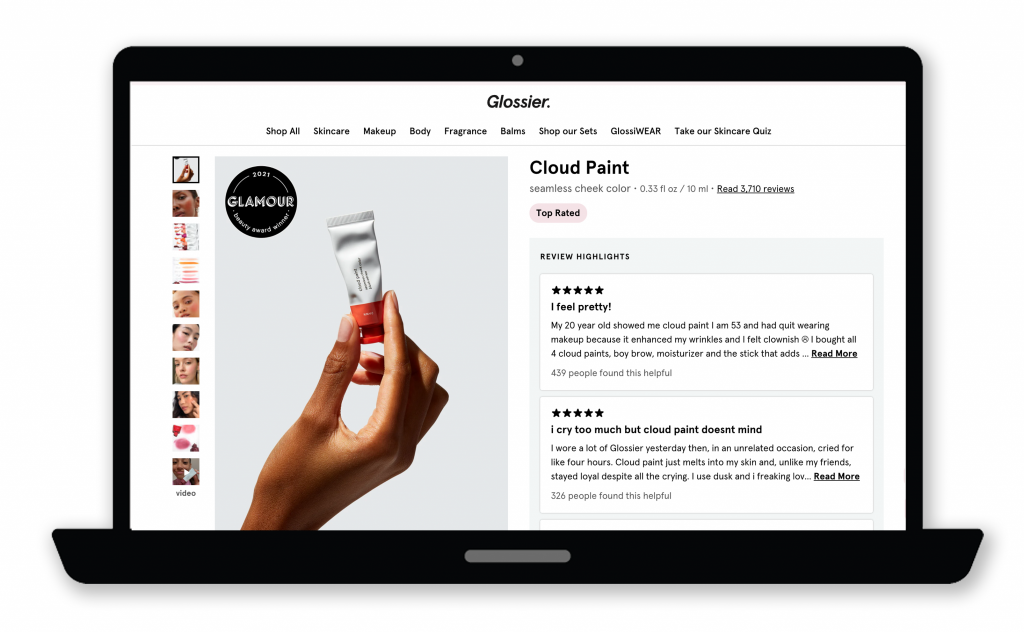Reviews are Serious Business

On October 13th, the American FTC sent a warning about fake reviews and endorsement to a list of 700 businesses that included everyone from Burger King, to Sony, to Ralph Lauren.
A tweet-sized summary of the notice:
“Fake reviews and other forms of deceptive endorsements cheat consumers and undercut honest businesses. Advertisers will pay a price if they engage in these deceptive practices.”
— Samuel Levine, Director, Bureau of Consumer Protection
To get even more specific: each confirmed instance of deceptive review or endorsement will come with a penalty of $43,792 USD.
There are two major stories here:
- In the same way that regulators cracked down on email marketing with CASL, GDPR, and similar rules, they’re now focusing on reviews and endorsement. And it’s not just happening to the big brands. In a recent sting operation, UK regulators posed as buyers of fake reviews and ended up busting dozens of small businesses, like dentists and auto body shops.
- Online reviews are a much bigger deal than we sometimes give them credit for. When we think about digital marketing, most of our imaginations go to content, social media, advertising and SEO; however, if you take a moment think not like a marketer, but like a potential buyer, it’s easy to see just how significant online endorsements and reviews are to the discovery, evaluation, and conversion process.
Plus, all of the attention that lawmakers are now paying to reviews seems to indicate that they feel like the practices carry real weight, so we gathered some of the most recent data on the impact of online reviews and here’s what we found:
- 91% of 18-34-year-olds trust online reviews as much as personal recommendations
- 93% of all consumers say that online reviews influence their purchase decisions
- Nearly nine out of ten (89%) of consumers worldwide make the effort to read reviews before buying products
- Product pages that include reviews enjoy conversion rates up to 3.5 times higher than those that don’t
- Customers are willing to spend 31% more on a business with excellent reviews

That’s great when the reviews are positive, but what about the bad ones?
- 94% say an online review has convinced them to avoid a business
- A one-star rating decrease could lead to a 5-9% decrease in revenue
- 53.3% of customers expect businesses to respond to their negative reviews within a week
If those numbers are even somewhat true, then the obvious question is: How seriously are we all taking our own online reviews?
Perhaps think of it this way: What percentage of your digital marketing time, energy, and budget is currently allocated to reviews and endorsements? Is that equal to the impact that they have on your business?
If you could be doing more, then here are a few places to start:
- Ask your best customers. No doubt there is a group of people who love you and just need you to let them know that an online review would be valuable and appreciated.
- Make it a part of your followup process. The moment after the purchase/visit is when customers are most likely to be in a positive-reviewing-mood. Which of your touchpoints could be used to ask for a review?

An example of a post purchase email prompting a customer for a review in exchange for a discount on a future purchase. - Are there product reviewers in your industry (ie. YouTubers, bloggers, podcasters, Instagrammers)? If so, get their hands on your product and get them talking about your brand.
- There’s nothing wrong with paying for an endorsement, just make sure that you disclose when you do.
And, of course, we want to do all of that in a way that’s above board and avoids the type of negative repercussions that the FTC is warning us all about. Fortunately, they also released a set of guidelines to help us all to navigate this maze of grey areas. Much like email, 99% of the rules come down to some basic common sense and can be summarized as: If it feels sketchy, it probably is.


